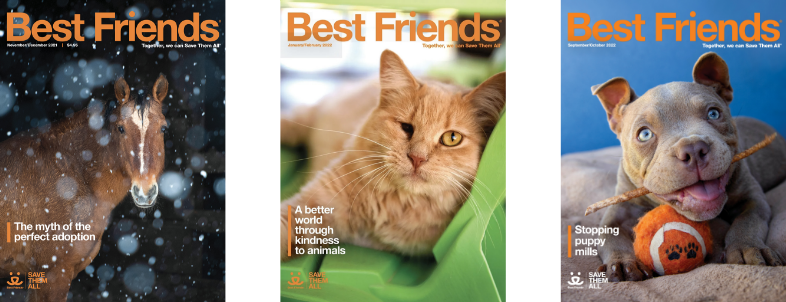The Other One
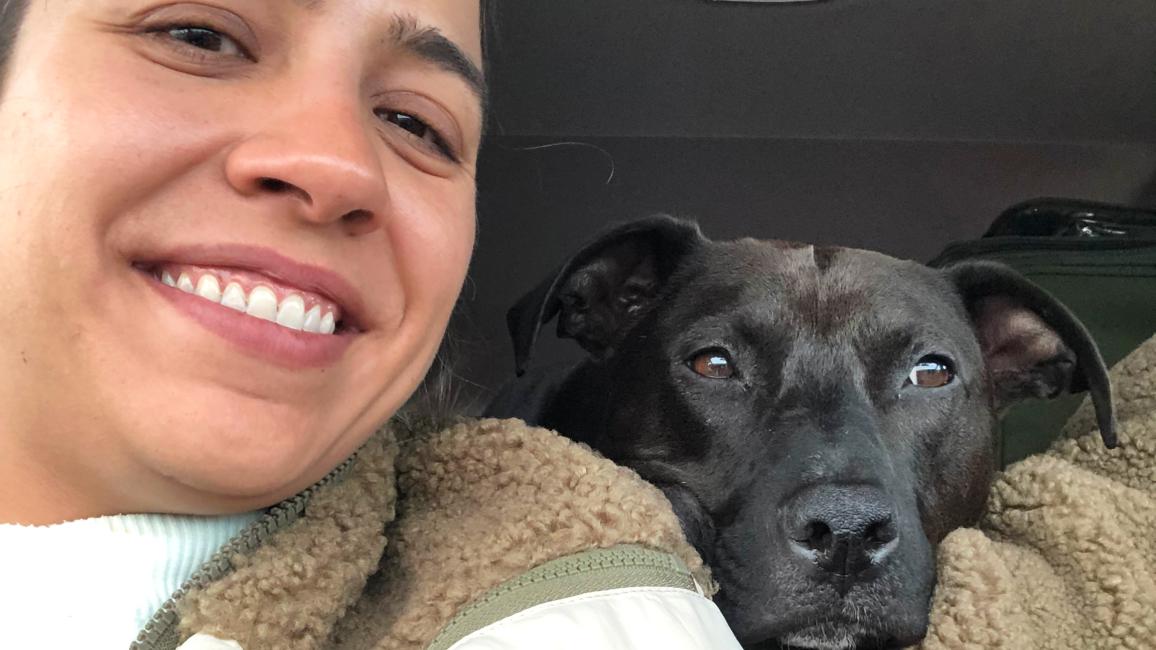
If one’s dog is a reflection of oneself, Pepper is what you’d want to see in the mirror: a magnificent espresso-colored pit bull terrier mix, cut with muscles and shining like a showroom tire. Pepper’s fur, soft as cashmere, has light brown highlights on his back and flanks that radiate in the sun. His white-dipped paws create the illusion that he walks on his toes like a ballet dancer.
He was a pandemic puppy, rescued in Texas and transported to New York to help address the lockdown-induced furry companionship rush that occurred in the spring of 2020. New Yorkers were snapping up dogs like they were rent-controlled apartments.
Determined to outmaneuver the competition, my wife and I staged our apartment with a cozy crate full of blankets and throw pillows, shiny aluminum food bowls, day beds, and treat jars. We did our best impression of a happy, active, yuppie couple with the means to see a dog through rounds of chemo if necessary. But for two months, we were denied.
I’ve been rejected a lot in life. I had trouble getting into private grade schools; apparently, shyness is not considered a predictor of future success. When it came time for college applications, I got into my safety school and that was it. Then, rejection in job interviews: “We’re just not sure you’re passionate about this position.” And now dog shelters? Who was being rescued anyway?
I started checking the shelter websites every hour on the hour. Three weeks later, within minutes of Pepper’s listing going live, he was granted to us, sight unseen. You want a dog? Here’s a dog.
We had set out to find a 4- to 5-year-old dog of about 35 pounds, a pup who had been thoroughly trained with a good track record. Pepper was 9 months old, projected to weigh 50 pounds, had “some training,” and came with no description of his “priors.” His previous name? El Chapo.
The overachiever
We soon found out, though, that Pepper is a congenital overachiever, managing to be both an athletic standout and an intellectual powerhouse, determined to outclass other dogs in all pursuits. The first time I let him off leash — to see whether he was the kind of dog who favored a game of fetch — he exploded off his mark, torching the turf in pursuit of the ball, leaping into midair, his body in perfect harmony, and crushing the ball in his jaws off one bounce 25 yards down the field. He ran back to me just as ferociously, begging to go again.
Pepper learned to catch a ball in his mouth with one already in it. He’d carry his two balls around the city, drawing laughs on every corner. “That’s one talented dog,” New Yorkers would say to me. He impresses more people in a day than I have in a lifetime. They’re drawn to his effusive personality and face of a thousand emotions. People assume by association that I must be interesting or engaging, but they quickly realize I share none of Pepper’s boyish charisma.
Other humans seem to resemble their dogs. The fluffy attract the fluffy. Bearded with bearded. They behave the same way. Peppy yoga aficionados with uppity little shepherds. Old men reading the paper on a bench with a tired hound nearby. How did I end up with the captain of the football team, valedictorian, and homecoming king rolled into one? I wanted to believe Pepper represented my personality, my abilities, even my world view. But I knew better.
[A dog at home wherever she roams]
For the first year of the pandemic, it was Pepper, my wife, and me — and virtually no one else. He’d spend all day at my feet, listening to my interminable Zoom calls. Our bond became intense and unhealthy. I couldn’t make it through a meal without talking about him. And he became protective of me. He wouldn’t let other dogs get near me. His hackles would go up, and he would bark fiercely.
The six blocks from our apartment to Central Park was a frightful gauntlet of dog walkers, motorcycles, skateboarders, squirrels, and sirens. To avoid a showdown, I would take nonsensical, circuitous routes, sometimes going multiple blocks in the wrong direction. I was touched by Pepper’s dedication to me, but something had to change. So we did the only logical thing there was to do: move the entire family across the country. We packed up and made a sprint for Colorado: land of long walks, infinite space, and forgiving neighbors.
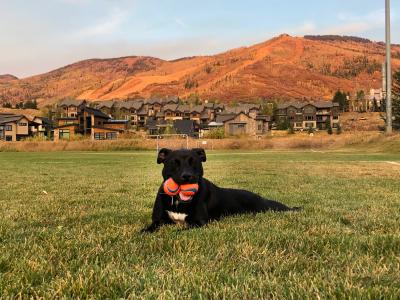
A dog’s new life in Colorado
On a misty November night, we were taking a walk with Pepper in our subdivision. In a ditch by a drainage pipe, I saw a black shadow scamper across my field of vision. “I think I just saw an animal,” I said to my wife. Immediate regret washed over me. I knew it was a dog, and I knew it was about to be ours.
My wife took off Pepper’s leash and darted off the sidewalk and into the ditch. She emerged with a black pit bull mix in tow. I can’t explain it, but even though my wife had materialized out of the mist with a strange dog, Pepper barely reacted. He simply looked up at me as if to say, “We’re keeping it, aren’t we?”
When we got the dog home and into the light, it was clear: This was no Pepper. He was an assemblage of junkyard scraps: long ears, short legs, stubby snout, protruding torso, and a narrow, sagging butt. His honey-colored eyes were pretty but vacant. This dog had seen some things. His coarse fur was spattered with paint like he’d been hiding in a work site, and a steady stream of drool seeped from the corner of his jowl, which was graying at the fringes.
It's an odd thing to care for a dog without a name. “Give him a treat,” my wife would say. “Which one?” “The other one.” The Other One had an uncanny ability to disarm Pepper’s provocations: a nip, a prod, a jab, a bark. The Other One just stood there, stonefaced and inert.
We dropped the Other One at the local humane society to serve the mandatory waiting period in case his owners wanted to claim him. My wife reiterated that we were to get first dibs if they never showed (as if a line would be forming).
The staff at the humane society put two weeks of work into the old boy before we picked him up. They washed the paint off, pulled seven decaying teeth, and did full blood work, along with behavioral exams and allergy tests. Based on the condition of his teeth, they said he had likely been out in the elements for some time, but other than that there wasn’t a thing wrong with him. An indestructible old station wagon of a dog.
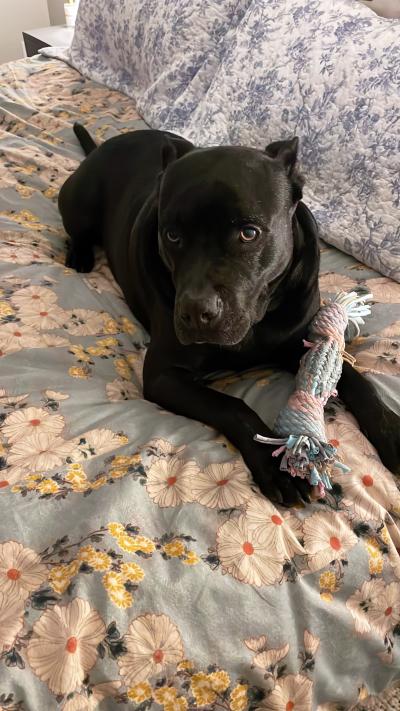
What’s in a name?
Around this time, I had been pitching my advertising business to an Italian liquor company called Fernet Branca. It’s a peculiar, dark, and objectively unappealing liquid, originally created to cure cholera. And so the Other One became known as Fernet.
For the first few weeks, Fernet would appear behind me at random with no warning. I’d step down off a ladder after replacing a light bulb, and he’d be sitting at the bottom staring up at me. I couldn’t tell whether he wanted a belly rub or wanted to murder me. My efforts to initiate play with him were futile. If I tossed a tennis ball to Fernet, he’d just let it hit him in the face without moving a muscle. His deadpan look said, “What was that for?” This was not my dog — maybe my wife’s. I was happy to provide for the animal, but realistically I had a favorite, and Fernet knew it. It made me sad.
Over time, though, I began to ponder our similarities, and I found them all too easily. My teachers in grade school loved me because I never made a sound. I routinely won the Panther Award for good citizenship — not because I did anything of value, but because I sat still and kept my mouth shut. Fernie seemed to have arrived at a similar insight: It’s amazing how far you can get in life just by not being a problem.
[Old dog is a diamond in the rough]
While Pepper and the other neighborhood dogs ran berserk around the park, Fernie would sit quietly next to the adult humans, accepting pats on the head and taking treats from random hands with the tenderness of a goodnight kiss.
I often wondered how a dog like Fernie made it alone out in the elements for so long. He’s not what we’re taught survival should look like. He’s no junkyard brawler or superior specimen. Gentleness does not get you out of a ditch. I had always felt that my compulsion to be agreeable was a weakness that needed compensating. But Fernie didn’t survive for weeks in a work site because he took on every coyote who wandered past — but rather because he readily accepted the help of a loving woman and cleaned the ears of a potential foe whom he needed as a friend.
We can’t all be Peppers. We don’t all evoke admiration. Maybe there’s virtue in just getting through the day — avoiding the scary things, taking a pat on the forehead when one is offered. Maybe what’s amazing is not that Fernie survived despite being vulnerable and sweet, but that he’s still vulnerable and sweet despite all the surviving.
Pepper eventually graduated Fernie from tolerance to acceptance to love, and now he protects his older, softer brother as he does me. Other dogs see Fernie as easy prey and try to display their dominance over him, only to learn the hard way that he’s with Pepper, so it’s best to leave him alone.
I’ve been preparing emotionally for Pepper’s death since he was 15 months old. I have always figured that I won’t bother replacing him. It would be pointless to try to summon that kind of love again. But it’s likely Fernie will be the first to go. It will just be Pepper, my wife, and me again, and we all know there won’t be another Other One.
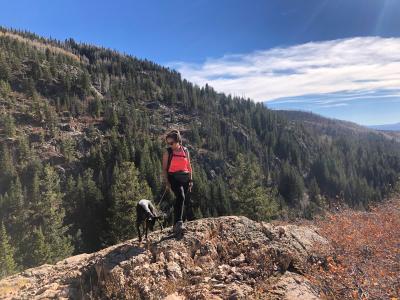
This article was originally published in the March/April 2023 issue of Best Friends magazine. Want more good news? Become a member and get stories like this six times a year.
